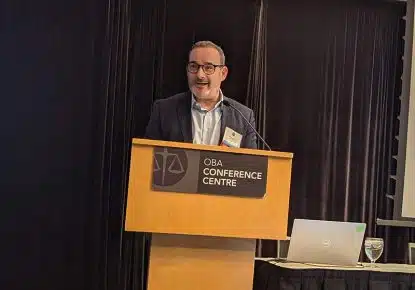
New Year brings changes to Rule 76 – Simplified Procedure
January 1, 2020, marks significant changes to the way some lawsuits are filed and tried at the Ontario Superior Court In an effort to contain the costs of litigation and speed up the time it takes to resolve civil actions, the Ontario Government introduced significant changes to claims brought under Rule 76: the Simplified Procedure.
The revisions increase the amount of money a party can claim from $100,000 up to $200,000. It also places a limit on the amount of court costs and disbursements that would be awarded against an unsuccessful party. In theory, these changes will allow claimants with somewhat modest claims, a simpler and speedier resolution process.
Amendments to Simplified Procedure under Rule 76 were decided after consultation with stakeholders including members of the legal community and insurance companies.
Some of the more significant changes are highlighted below:
Increase Simplified Procedure claim limits
The monetary jurisdiction of Simplified Procedure will double from $100,000 to $200,000. Under this change, cases that are valued up to $200,000, but above the Small Claims Court limit of $35,000, should proceed under Rule 76.
Limits on costs, disbursements and the number of expert witnesses
The legal costs a successful party can recover from an unsuccessful party are now capped at $50,000.00 in fees and $25,000.00 in disbursements, except in rare circumstances.
Increased Discovery
Parties under a Rule 76 claim were previously limited to 2 hours of discovery which is now being increased to 3 hours.
Elimination of civil juries
Potentially a sign of the future for all civil actions, the Simplified Procedure will now have no jury trials and all claims under this Rule will be heard by a judge only.
This will help reduce costs and speed up the resolution of cases. Judges know the law. They understand the rules of evidence and will help promote equitable resolutions in a much more efficient way.
Trial Process
All trials under Rule 76 are now a maximum of 5 days. A judge cannot extend the trial time. Each party will have an opportunity to make an opening statement and oral argument at the end of the case. A party introduces evidence by way of affidavit or discovery evidence of the opposing party only and not direct testimony. Any opposing party may cross-examine a witness. A party can call no more than 3 expert witnesses
Understanding the Process
Potential parties need to hire lawyers that have the ability to make the correct decision as to how to proceed at an early stage. The lawyers will need to carefully assess the value of their clients’ claim taking into consideration issues of liability, statutory deductibles and Statutory Accident Benefit (SAB) entitlements. If a claim is assessed improperly, a client could find themselves on the wrong side of a cost award.
To read the entire Rule 76 go to : http://canlii.ca/t/t8m
For more information contact singerkatz.com








